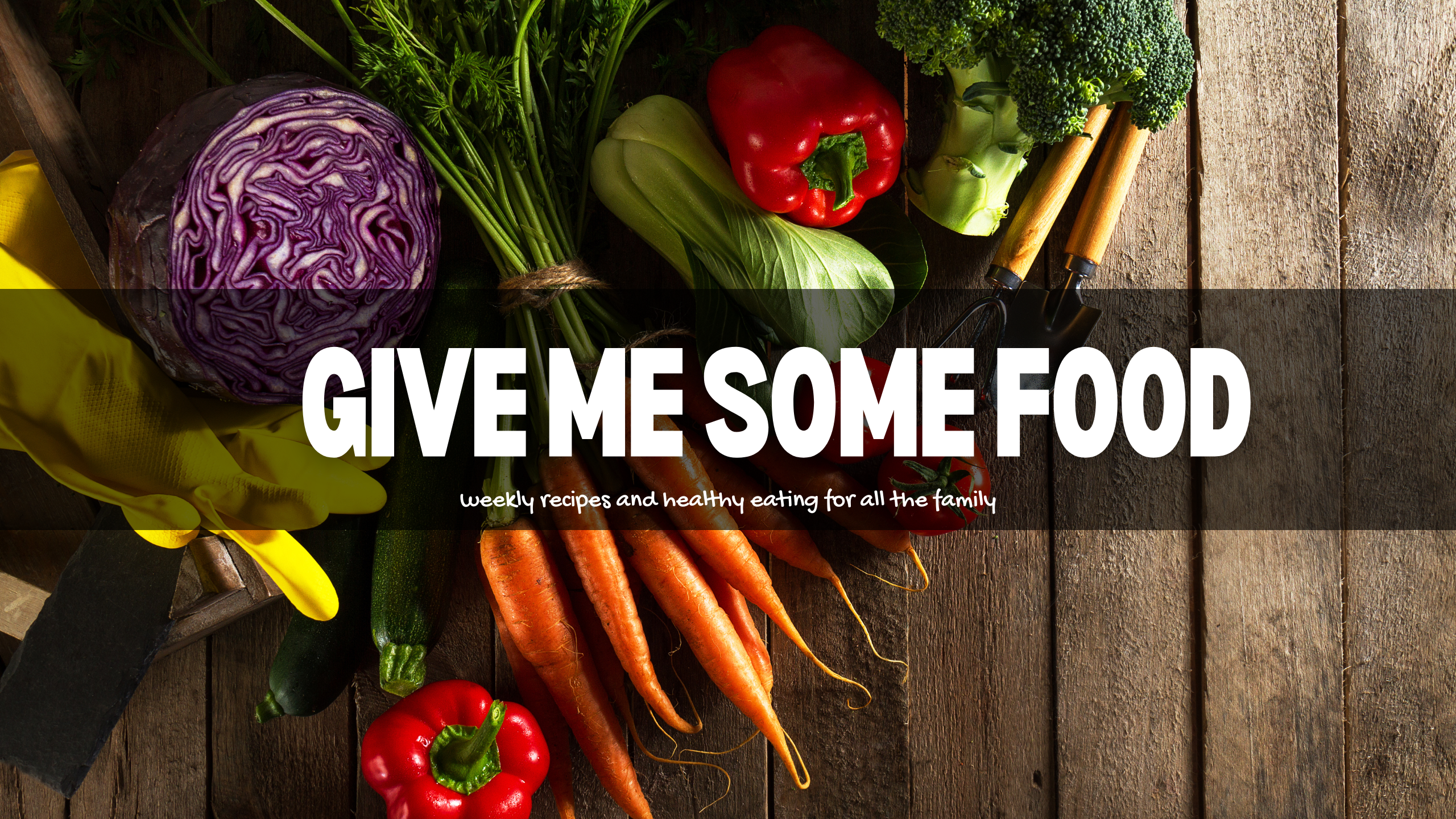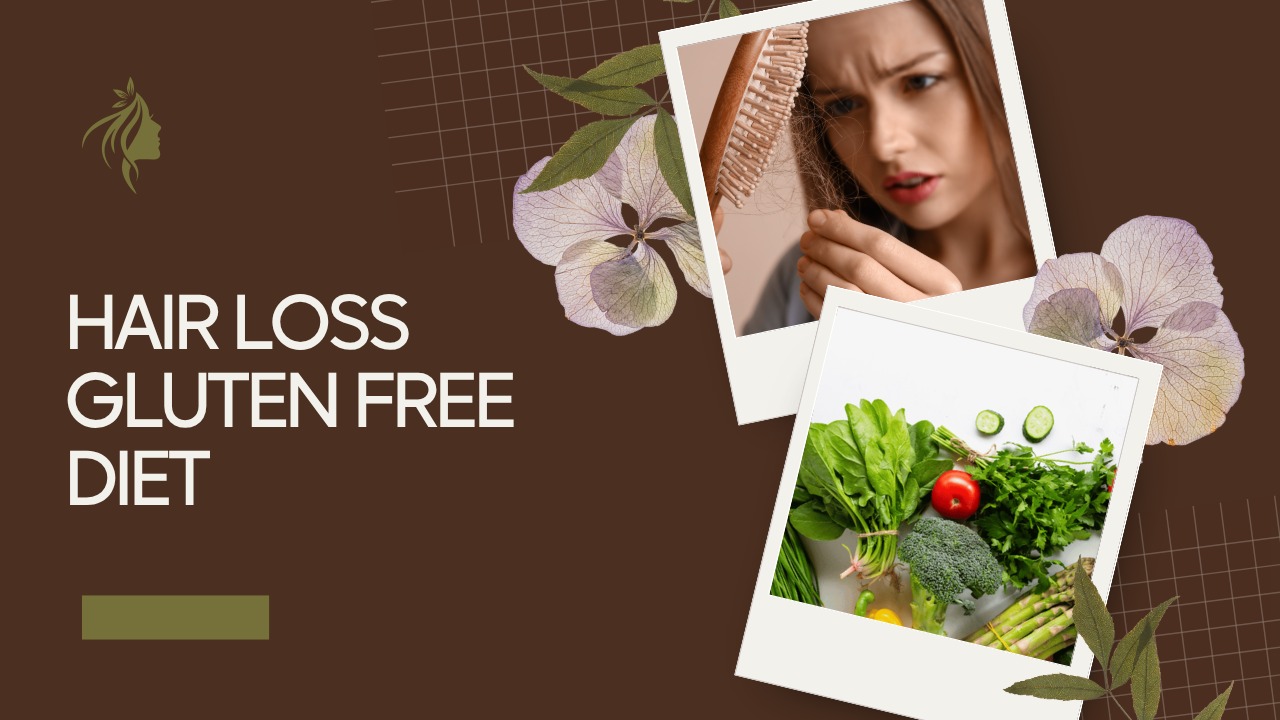Hair loss is a common concern that affects people of all ages, and it can be caused by a variety of factors. From genetics to hormonal imbalances, stress, and even diet, many elements influence the health of your hair. One of the often overlooked causes of hair loss is food sensitivity or intolerance, particularly to gluten.
Gluten is a protein found in wheat, barley, and rye. For people with celiac disease or non-celiac gluten sensitivity, consuming gluten can cause inflammation in the body, leading to various health issues, including hair loss. As more people become aware of the link between diet and hair health, adopting a gluten-free diet has gained traction as a potential remedy for preventing and managing hair loss.
This article will explore the science behind it, and how switching to a gluten-free diet can help restore hair health. We’ll also share 8 effective tips for combating hair loss on a gluten-free diet, along with the benefits of each tip, the ingredients to focus on, and how to implement them.
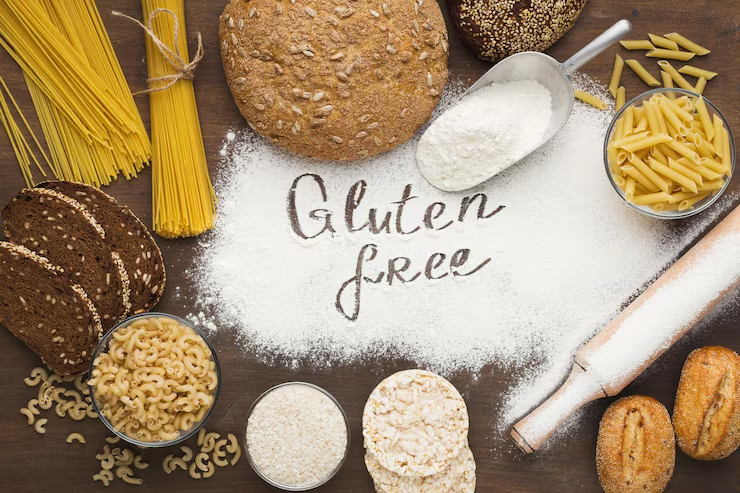
What is Gluten ?
Gluten is a group of proteins commonly found in grains like wheat, barley, and rye. It plays a vital role in giving dough its elasticity and helps baked goods maintain their shape. While gluten poses no harm to most individuals, it can be problematic for people with gluten intolerance or celiac disease, triggering a range of health issues, including digestive problems and fatigue.
When it comes to a hair loss gluten free diet, some people may unknowingly experience nutrient deficiencies after removing gluten-containing grains. These grains are often fortified with B-vitamins, iron, and zinc—nutrients that are crucial for hair growth and follicle health. Without adequate replacements, hair health may suffer.
To prevent this, it’s essential to focus on nutrient-dense, gluten-free alternatives like quinoa, amaranth, lentils, nuts, and seeds. A balanced hair loss gluten free diet ensures your body receives the vitamins and minerals needed to support strong, healthy hair while avoiding gluten-related triggers.
Why Does Gluten Cause Hair Loss ?
For individuals with gluten sensitivity or celiac disease, consuming gluten can trigger an autoimmune response that harms the small intestine. This damage hinders the body’s ability to absorb key nutrients from food, including vital vitamins and minerals that support healthy hair growth.
The resulting nutrient deficiencies—especially in iron, zinc, biotin, and protein—can weaken hair follicles, causing thinning, brittleness, or even excessive shedding. These changes often become noticeable a few months after the onset of poor nutrient absorption and can be distressing if left unaddressed.
Following a carefully planned hair loss gluten free diet can help restore nutrient balance and support hair regrowth. By including naturally gluten-free, nutrient-dense foods like leafy greens, nuts, legumes, and seeds, individuals can rebuild their health from the inside out. Proper supplementation and consistent dietary adjustments are essential in managing both gluten sensitivity and its effects on hair health.
When Does Gluten Cause Hair Loss ?
Hair loss due to gluten typically manifests over time, rather than appearing suddenly. For those sensitive to gluten or with undiagnosed celiac disease, this gradual thinning can occur as the body struggles with chronic inflammation and nutrient malabsorption. It’s often overlooked until more visible symptoms appear.
Interestingly, hair thinning may even be the first noticeable sign of a gluten-related issue, well before digestive discomfort begins. When the gut lining is damaged by gluten, it can’t effectively absorb vital nutrients like B-vitamins, zinc, and iron—all essential for strong, healthy hair.
Following a hair loss gluten free diet can help address the root cause. Removing gluten may allow the gut to heal and restore nutrient absorption, ultimately benefiting hair health. If hair shedding persists, consulting a healthcare professional to identify specific deficiencies or underlying autoimmune triggers is a wise step toward holistic recovery.
How Does Gluten Impact Hair Growth ?
When gluten is ingested by someone with gluten intolerance, it can trigger chronic inflammation within the body. This inflammation can harm the lining of the small intestine, impairing nutrient absorption. Essential nutrients like zinc, iron, and B-vitamins—which play key roles in hair health—become deficient, weakening the hair follicles.
Without these nutrients, the hair growth cycle may be disrupted. Hair strands may prematurely enter the shedding (telogen) phase, leading to noticeable thinning or even bald patches in some cases. This type of hair loss is often gradual, making it harder to connect directly to dietary issues at first.
Following a hair loss gluten free diet can be an effective strategy for those affected. By eliminating gluten and focusing on nutrient-dense, whole foods, the gut can begin to heal. With time and proper nutrition, hair growth often improves as the body restores its ability to absorb critical nutrients needed for healthy hair.
Top Tips for Managing Hair Loss on a Gluten-Free Diet
Now, let’s dive into actionable tips that will help you manage hair loss while adhering to a gluten-free diet.
Ensure a Nutrient-Rich Diet

A gluten-free diet often eliminates common staples such as wheat, barley, and rye—grains that are typically fortified with essential nutrients. For individuals on a hair loss gluten free diet, it’s crucial to find healthy, nutrient-dense substitutes to prevent deficiencies that can impact hair health.
Without these grains, your intake of iron, B vitamins, zinc, and other hair-supporting nutrients may decline, leading to increased hair thinning or shedding over time. Whole gluten-free grains like quinoa, buckwheat, amaranth, and fortified gluten-free cereals can help fill this nutritional gap while supporting digestion and overall health.
Maintaining a well-balanced hair loss gluten free diet means more than just avoiding gluten—it requires careful planning to include foods that restore what’s lost. With the right nutritional balance, you can protect your hair, nourish your scalp, and support strong, vibrant hair growth even while managing gluten sensitivities. Prioritizing whole foods is key to long-term hair and wellness benefits.
Key Ingredients:
Leafy Greens: Spinach, kale, and Swiss chard are packed with iron, vitamins A and C, and folate, which are important for healthy hair.
Nuts and Seeds: Walnuts, flaxseeds, and pumpkin seeds are high in Omega-3 fatty acids, which promote hair growth.
Eggs: A great source of biotin, which is essential for hair health.
Benefits: nutrient-rich diet supports overall health and provides the necessary building blocks for strong, healthy hair growth. Deficiencies in nutrients like iron, biotin, and vitamin D can lead to hair loss.
Focus on Protein-Rich Foods
Hair is primarily composed of a protein known as keratin, and getting enough protein is essential for keeping hair strong and healthy. For those following a hair loss gluten free diet, it’s important to ensure your meals are rich in high-quality, gluten-free protein sources like lentils, chickpeas, quinoa, tofu, and nuts.
When the body doesn’t receive adequate protein, it may shift its focus to supporting vital functions, leading to hair thinning and breakage over time. This is why individuals on a restrictive gluten-free diet must pay attention to their protein intake to avoid nutrient deficiencies that may trigger hair loss.
By consciously including protein-rich, gluten-free foods in your daily meals, you not only support your overall health but also nourish your hair from within. A balanced hair loss gluten free diet can help rebuild damaged hair, strengthen follicles, and improve the texture and thickness of your hair over time.
Key Ingredients:
Lean Meats: Chicken, turkey, and grass-fed beef are excellent sources of protein.
Fish: Salmon, tuna, and sardines are rich in protein and Omega-3 fatty acids, which promote hair growth.
Plant-Based Proteins: Lentils, quinoa, and tofu are great sources for those following a vegetarian or vegan gluten-free diet.
Benefits: Protein is vital for hair follicle regeneration, and inadequate protein intake can result in weak, thinning hair.
Include Gluten-Free Whole Grains
While gluten-free diets eliminate many traditional grains, it’s essential to replace them with nutrient-dense alternatives. For those following a hair loss gluten free diet, this becomes even more important. Whole grains like quinoa, brown rice, buckwheat, and amaranth are excellent gluten-free options that provide fiber, iron, B vitamins, and other nutrients vital for hair growth.
These gluten-free whole grains help support healthy digestion, which is directly linked to nutrient absorption. When your gut functions optimally, your body can better absorb hair-supporting nutrients like zinc, iron, and biotin—often lacking in restrictive diets. Improved digestion ensures your hair follicles get the nourishment they need.
Incorporating whole grains into a hair loss gluten free diet adds balance and boosts your overall nutritional intake. By making smart substitutions instead of just eliminating gluten, you can maintain your hair’s strength, reduce shedding, and promote a healthier scalp and hair growth environment over time.
Key Ingredients:
Quinoa: High in protein, amino acids, and iron.
Brown Rice: Rich in vitamins B1 and B3, which help improve circulation and nourish the scalp.
Oats: A source of B-vitamins and antioxidants that contribute to stronger hair.
Benefits: Whole grains are a great source of slow-releasing energy and are rich in the vitamins and minerals needed for maintaining hair thickness and growth.
Improve Scalp Health with Essential Oils

A healthy scalp forms the foundation for strong and vibrant hair. On a hair loss gluten free diet, paying attention to scalp care becomes even more important, as dietary changes can affect overall hair health. Incorporating natural remedies, such as essential oils, into your routine can support both scalp and hair wellness.
Essential oils like rosemary, peppermint, and tea tree are known to improve blood circulation to the scalp, reduce inflammation, and help clear clogged hair follicles. This creates a healthier environment for hair growth, especially when your body is adjusting to a new gluten-free lifestyle that may initially impact nutrient absorption.
Massaging essential oils into the scalp a few times a week can complement the benefits of a hair loss gluten free diet. Choose carrier oils like coconut or jojoba to dilute essential oils and enhance their effectiveness. With consistency, this practice can help promote thicker, stronger hair and reduce shedding.
Key Ingredients:
Rosemary Oil: Stimulates blood flow to the scalp, promoting hair growth.
Peppermint Oil: Has a cooling effect and stimulates hair follicles.
Lavender Oil: Known for its calming properties, lavender can reduce scalp inflammation and balance oil production.
Benefits: Essential oils promote a healthy scalp environment, allowing hair follicles to thrive and reducing the risk of hair thinning.
Stay Hydrated
Hydration is crucial for maintaining overall health, and it plays a vital role in the strength and growth of your hair. On a hair loss gluten free diet, it’s especially important to stay well-hydrated, as nutrient absorption can be influenced by both diet changes and hydration levels. Water helps transport essential vitamins and minerals to the hair follicles, promoting stronger, healthier strands.
When the body is dehydrated, hair follicles may not receive the nourishment they need, leading to dryness, brittleness, and increased shedding. This can make hair loss more noticeable, especially if your gluten-free diet lacks hydration-supporting foods like fruits and vegetables with high water content.
To support hair health on a hair loss gluten free diet, aim to drink at least 8–10 glasses of water daily and include hydrating foods like cucumber, watermelon, and oranges. This simple habit can make a noticeable difference in the moisture and resilience of your hair.
Key Ingredients:
Water: The most essential element for hydration.
Coconut Water: Contains electrolytes and keeps the scalp hydrated.
Herbal Teas: Green tea, peppermint tea, and chamomile tea provide additional antioxidants.
Benefits: Staying hydrated supports overall health, including the hydration of your scalp, which in turn encourages hair growth and reduces dryness.
Eliminate Processed Gluten-Free Foods
While it may seem convenient to reach for gluten-free packaged snacks, these foods are often highly processed and lacking in nutritional value. Many contain excessive sugar, refined oils, and preservatives that can trigger inflammation within the body. This internal inflammation can negatively affect your scalp and hair follicles, increasing the risk of hair thinning or shedding—especially for those following a hair loss gluten free diet.
Relying heavily on these processed alternatives might provide temporary gluten-free satisfaction but could be detrimental to your long-term hair health. Inflammation is a known factor in various types of hair loss, and an unbalanced gluten-free diet can worsen this issue by depriving your body of essential nutrients.
To support your hair while on a hair loss gluten free diet, focus on whole, nutrient-dense foods like leafy greens, quinoa, avocados, and legumes. These natural choices help minimize inflammation and provide the vitamins and minerals necessary for strong, healthy hair.
Key Ingredients to Avoid:
Refined Sugars: These can cause insulin spikes, leading to inflammation.
Refined Oils: Such as vegetable oil, which can cause oxidative stress.
Benefits: Eliminating processed gluten-free foods reduces inflammation and helps maintain a balanced, healthy environment for hair growth.
Incorporate Antioxidant-Rich Foods
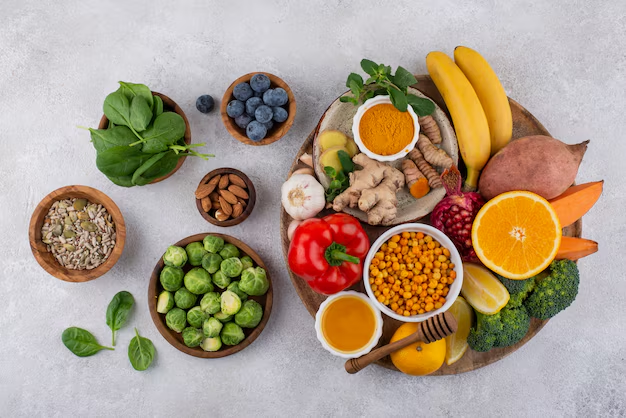
Antioxidants are essential for maintaining overall health, including the health of your hair. Oxidative stress, caused by free radicals, can damage hair follicles and contribute to premature hair thinning or shedding. For those dealing with hair issues, especially while following a hair loss gluten free diet, antioxidants become a powerful ally.
A gluten-free diet, if not well-planned, may lack variety in essential nutrients. This makes it even more important to include antioxidant-rich, naturally gluten-free foods such as berries, spinach, sweet potatoes, and nuts. These foods not only support your immune system but also promote stronger hair follicles and improved scalp health.
By incorporating these vibrant, nutrient-packed foods into your daily routine, you can counteract the negative effects of oxidative stress. Whether you’re managing a gluten sensitivity or focusing on hair health, a well-balanced hair loss gluten free diet with antioxidants can make a visible difference in your hair’s strength and shine.
Key Ingredients:
Berries: Blueberries, strawberries, and raspberries are packed with antioxidants like vitamin C.
Tomatoes: Rich in lycopene, which fights free radical damage.
Nuts: Almonds and walnuts provide Vitamin E, which improves circulation to the scalp.
Benefits: Antioxidants help protect your hair from oxidative damage and support healthy follicle function.
Manage Stress Effectively
Chronic stress can significantly impact your overall health—and your hair is no exception. Prolonged periods of stress may trigger hormonal imbalances and inflammation that can lead to thinning hair and even hair loss. For individuals following a hair loss gluten free diet, it’s especially important to manage stress effectively to support both nutritional balance and scalp health.
When combined with potential nutrient gaps that can occur in gluten-free eating, unmanaged stress may worsen hair shedding. The transition to a gluten-free lifestyle often involves eliminating fortified foods, which may lead to lower levels of B vitamins, iron, or zinc—nutrients essential for hair growth. This makes stress management a priority while adopting a hair loss gluten free diet.
To combat this, focus on regular exercise, mindfulness practices like meditation or yoga, and ensure your gluten-free meals are nutrient-dense. A holistic approach can help your body adjust and promote healthier, fuller hair over time.
Key Ingredients:
Adaptogens: Herbs like ashwagandha and Rhodiola help balance stress hormones.
Magnesium: Found in leafy greens, seeds, and nuts, magnesium helps regulate stress levels.
Benefits: Stress reduction leads to balanced hormone levels and can prevent stress-induced hair loss.
Conclusion
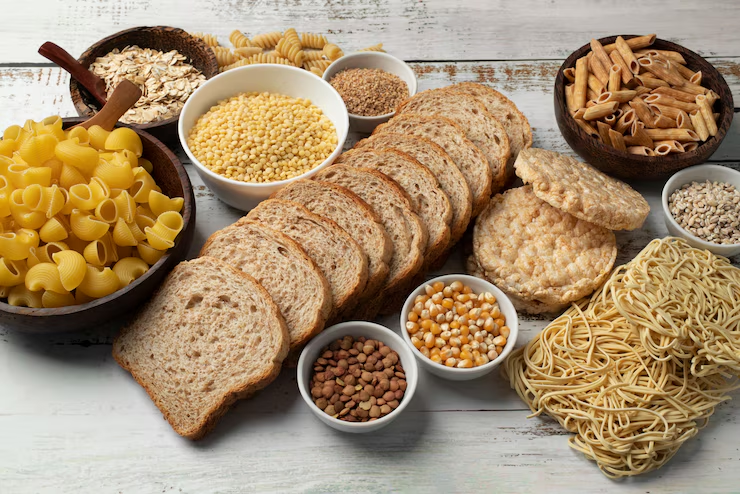
When gluten is ingested by someone with gluten intolerance, it can trigger chronic inflammation within the body. This inflammation can harm the lining of the small intestine, impairing nutrient absorption. Essential nutrients like zinc, iron, and B-vitamins—which play key roles in hair health—become deficient, weakening the hair follicles.
Without these nutrients, the hair growth cycle may be disrupted. Hair strands may prematurely enter the shedding (telogen) phase, leading to noticeable thinning or even bald patches in some cases. This type of hair loss is often gradual, making it harder to connect directly to dietary issues at first.
Following a hair loss gluten free diet can be an effective strategy for those affected. By eliminating gluten and focusing on nutrient-dense, whole foods, the gut can begin to heal. With time and proper nutrition, hair growth often improves as the body restores its ability to absorb critical nutrients needed for healthy hair.
FAQs
Q1. Can a gluten-free diet help with hair loss ?
Yes, a gluten-free diet can help improve hair health, especially if your hair loss is related to gluten intolerance or celiac disease. By removing gluten, you can reduce inflammation and improve nutrient absorption, leading to healthier hair.
Q2. What are the best foods for hair growth on a gluten-free diet ?
The best foods for hair growth on a gluten-free diet include lean proteins (chicken, fish, quinoa), healthy fats (avocados, nuts, seeds), and nutrient-dense vegetables (spinach, kale). These foods provide essential nutrients like biotin, iron, and Omega-3 fatty acids that promote hair health.
Q3. How long does it take for hair to grow back after going gluten-free ?
It can take several months (usually 3-6 months) for hair to start growing back after eliminating gluten from the diet. Hair growth is a slow process, and it depends on various factors, including the severity of the gluten intolerance and the health of your hair follicles.
Q4. Can gluten cause hair thinning ?
Yes, gluten intolerance or celiac disease can lead to hair thinning or shedding due to nutrient deficiencies caused by impaired digestion. When the body is unable to absorb necessary nutrients, hair follicles may become weak and hair growth slows down.
Q5. Are there any gluten-free hair care products that can help with hair loss ?
While diet plays a major role in hair health, there are gluten-free hair care products that can help nourish and strengthen hair.
